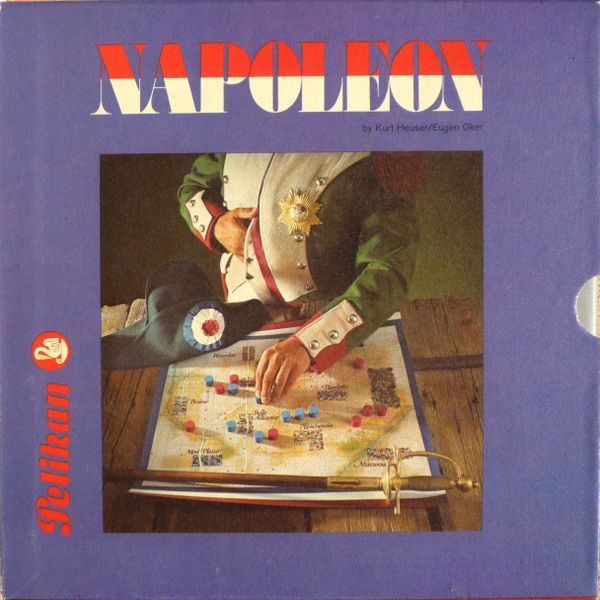Napoleon (1975) Board Game
The Napoleon board game was released in 1975 and is designed for 2 players. It falls under the categories of Abstract Strategy, Napoleonic, and Wargame. The game is set during the Napoleonic Wars and players take on the roles of French and Allied forces battling it out on a square grid battlefield.
Game Components of Napoleon
How To Setup Napoleon
To set up the game, players first arrange the blocks with their unit designations hidden from the opposing player, simulating the “fog of war.” The main board is laid out to depict the battle area, and each player forms their blocks into groups. The game can be played with two or three players, representing the French, British & allies, and Prussian armies.
Gameplay Mechanics and Game Objective
Player Experience
Napoleon offers a challenging and dynamic gameplay experience, with each game playing differently due to the hidden unit designations and the unpredictability of dice rolls. Players must strategize in terms of “space-time,” planning a series of marches culminating in a decisive battle. The game requires strategic thinking and adaptability to overcome unexpected outcomes[2%.
Pros
Cons
Personal Thoughts on Napoleon
Napoleon is ideal for fans of historical wargames and those who enjoy strategic gameplay with a touch of unpredictability. It is a refreshing break from more complex and detailed wargames, offering a streamlined yet engaging experience. The game’s simplicity and dynamic nature make it accessible to new players while still providing a challenging experience for veterans of wargaming.
We are supported by our audience. When you purchase through links on our site, we may earn an affiliate commission, at no extra cost for you. Learn more.

